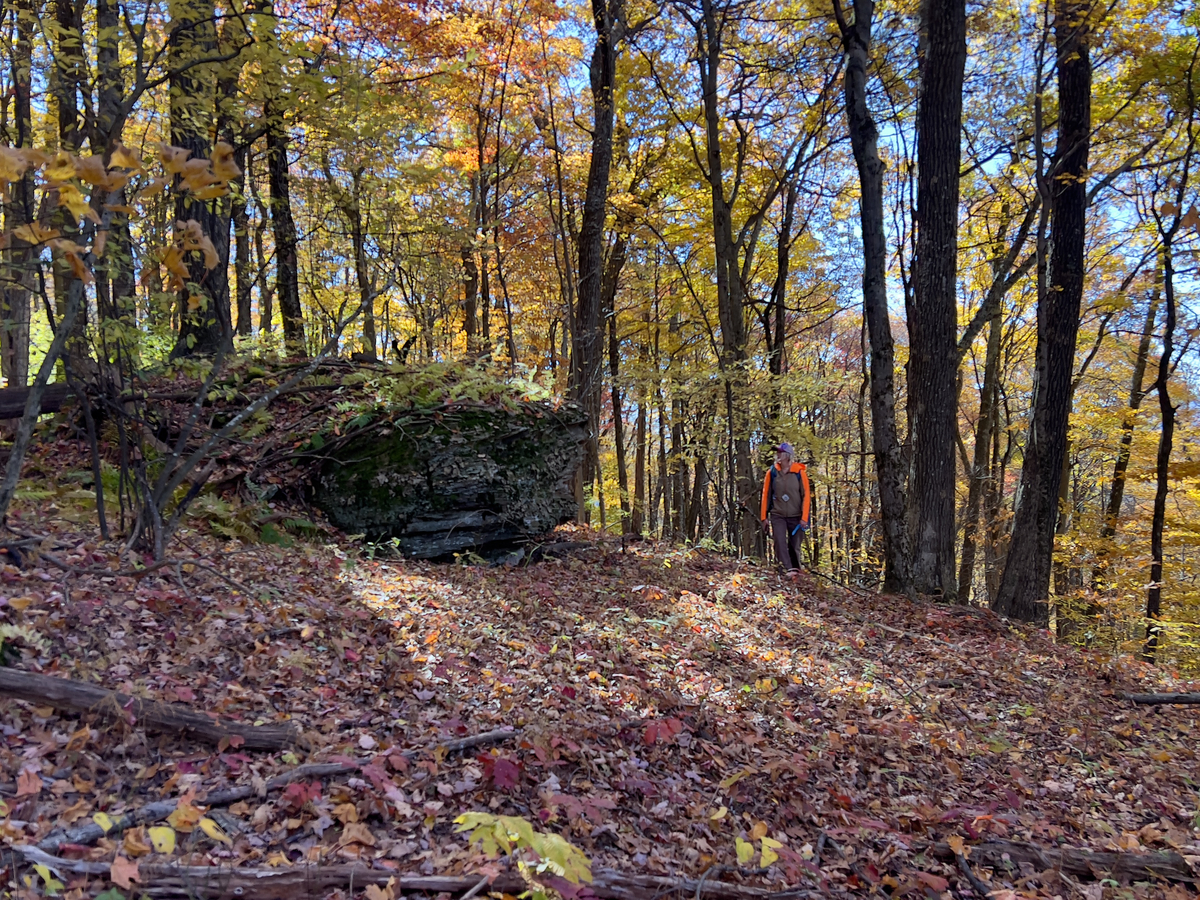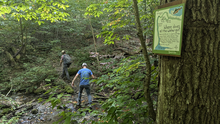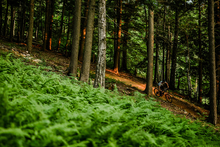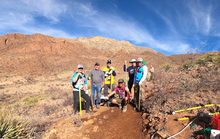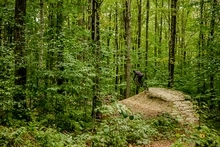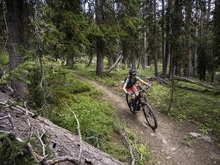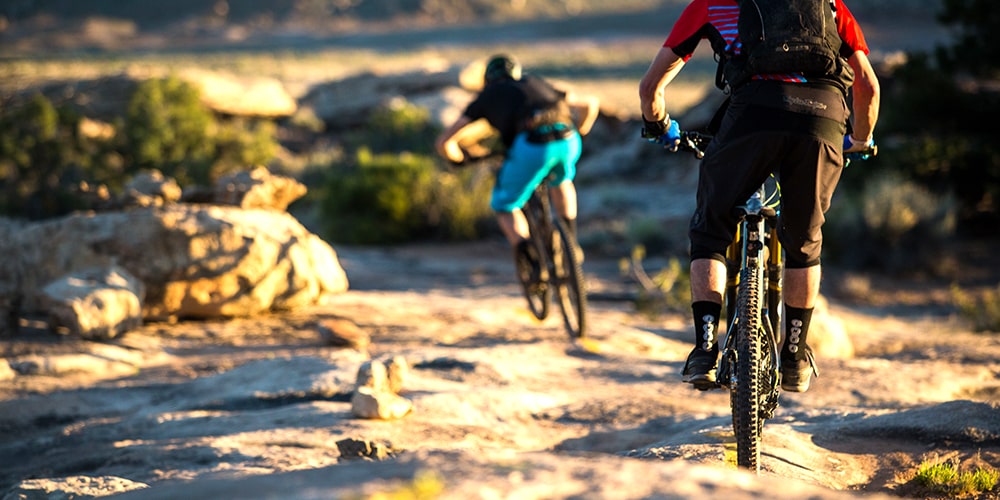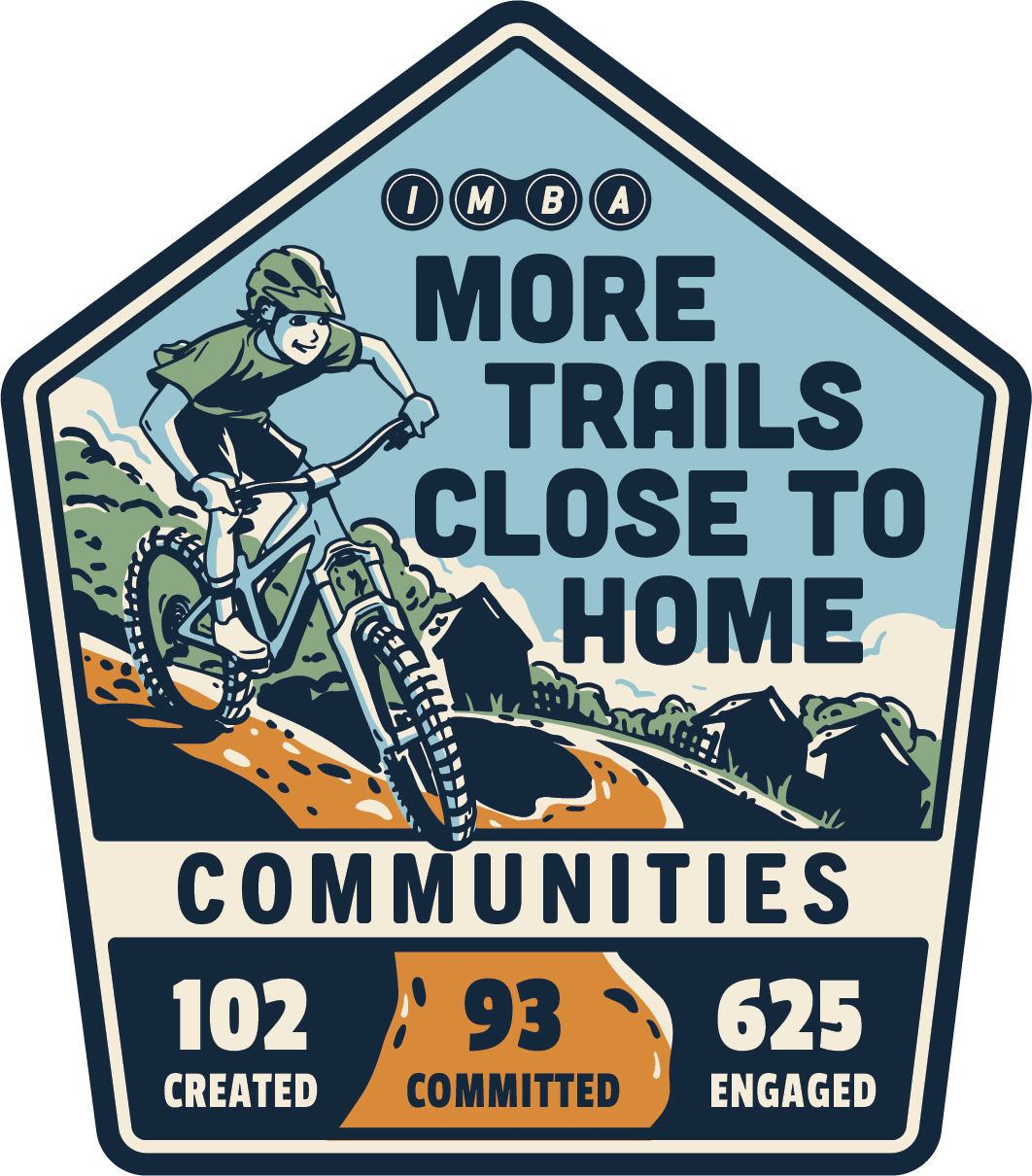Riding the Wave in Williamstown
The eastern region of West Virginia is visually stunning and pocketed with outdoor recreation opportunities. And there’s more on the horizon thanks to the dedication of regional and national partnerships.
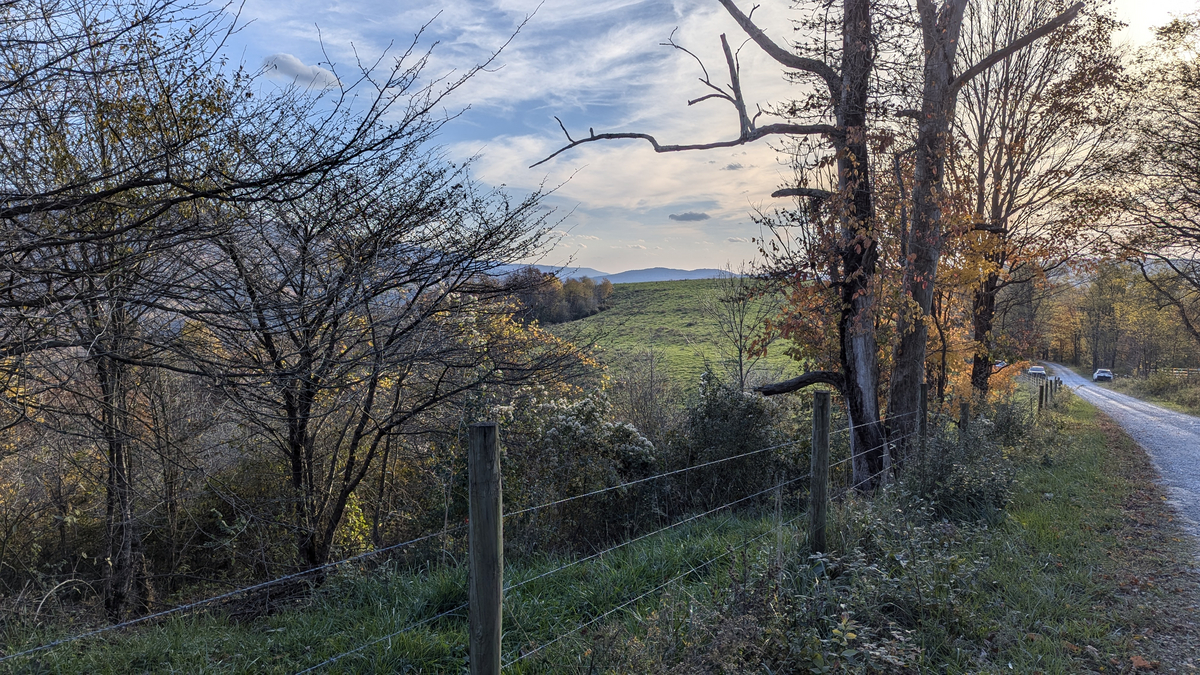
Sunset while field designing. //Liz Grades
Due west of Washington D.C., this area is a quintessential representation of Appalachia. Miles of verdant valleys and steep ridges abound, but many communities continue to struggle with economic and public health crises. Over the last decade, concerted efforts have been made to improve quality of life, resident recruitment and retention, and tourism spending.
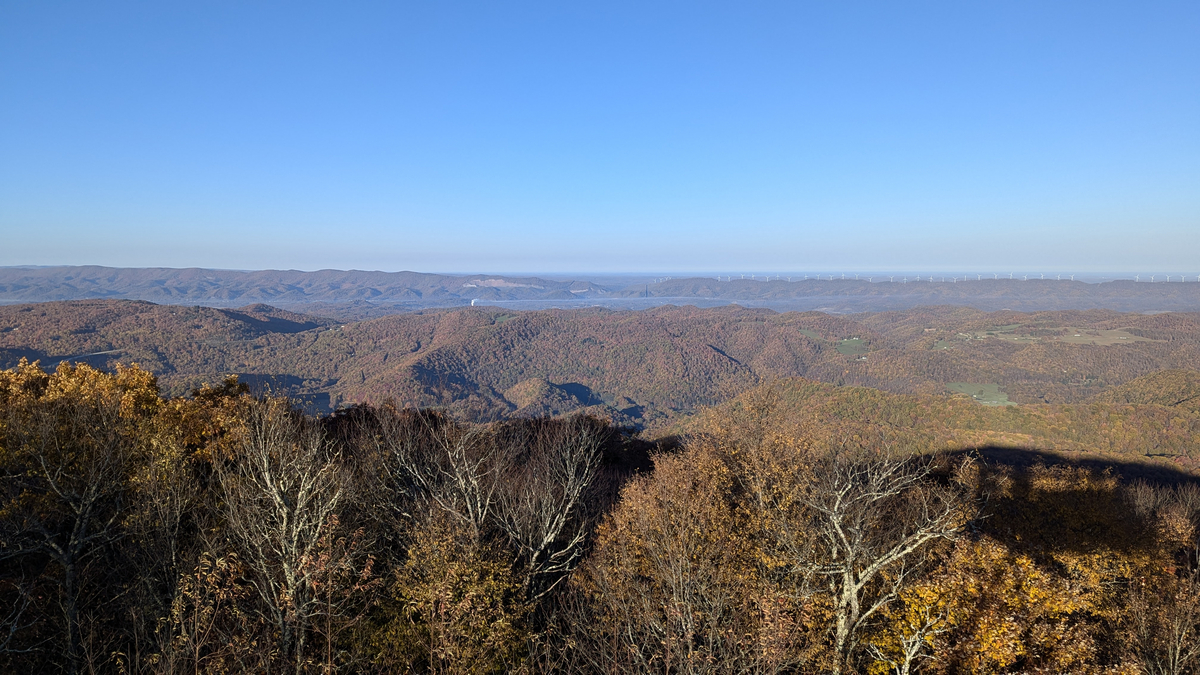
The view from the Bikle Knob Observation Tower. //Liz Grades
West Virginia University’s Brad and Alys Smith Outdoor Economic Development Collaborative has been at the forefront and directly supporting many of these efforts. Focused on many facets of the outdoor recreation economy, a particular emphasis on shared-use trail development has been key to progress in recent years as the Collaborative partners with West Virginian communities.
The small towns of Elkins and Parsons are one such trail desert in the region. “We have some of the most amazing outdoor recreation opportunities within 90 minutes but are lacking those resources in our own backyards,” said Jessica Sutton, Outdoor Community Development Manager for West Virginia University’s Brad and Alys Smith Outdoor Economic Development Collaborative and Director of Elkins Area Shared Trails. Jessica is a 22-year resident of the Elkins area and has offered local perspective on what trail gaps exist.
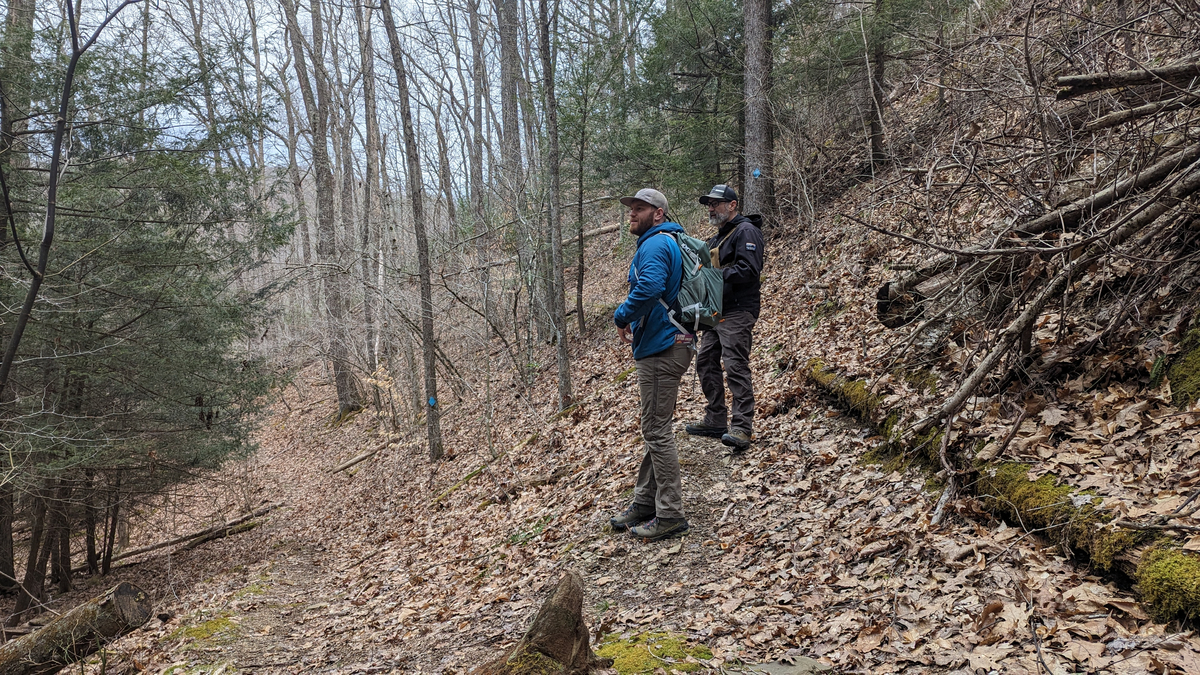
Forrest Town (IMBA Trail Solutions) and Rich Edwards (Smith OEDC) discuss a zone during the March 2024 site visit. // Liz Grades
With a project like this being driven locally, it makes all the pieces of the trail development process fall into familiar places. “Elkins Area Shared Trails has been the main driver behind this project,” said Morgan Rao, North Zone Recreation Planner for the U.S. Forest Service. The U.S. Forest Service has provided input on agency requirements (such as NEPA and agency trail standards) as well as on the desired recreational outcomes, and IMBA Trail Solutions was cited as the key partner in making the trails come to life.
This area was selected for assessment, planning, and design during IMBA’s 2022 Trail Accelerator Grant cycle. With an overall concept plan for over 100 miles of new trails, this future development spans six different opportunity zones.
More about Trail Accelerator Grants
Check out this project's concept plan
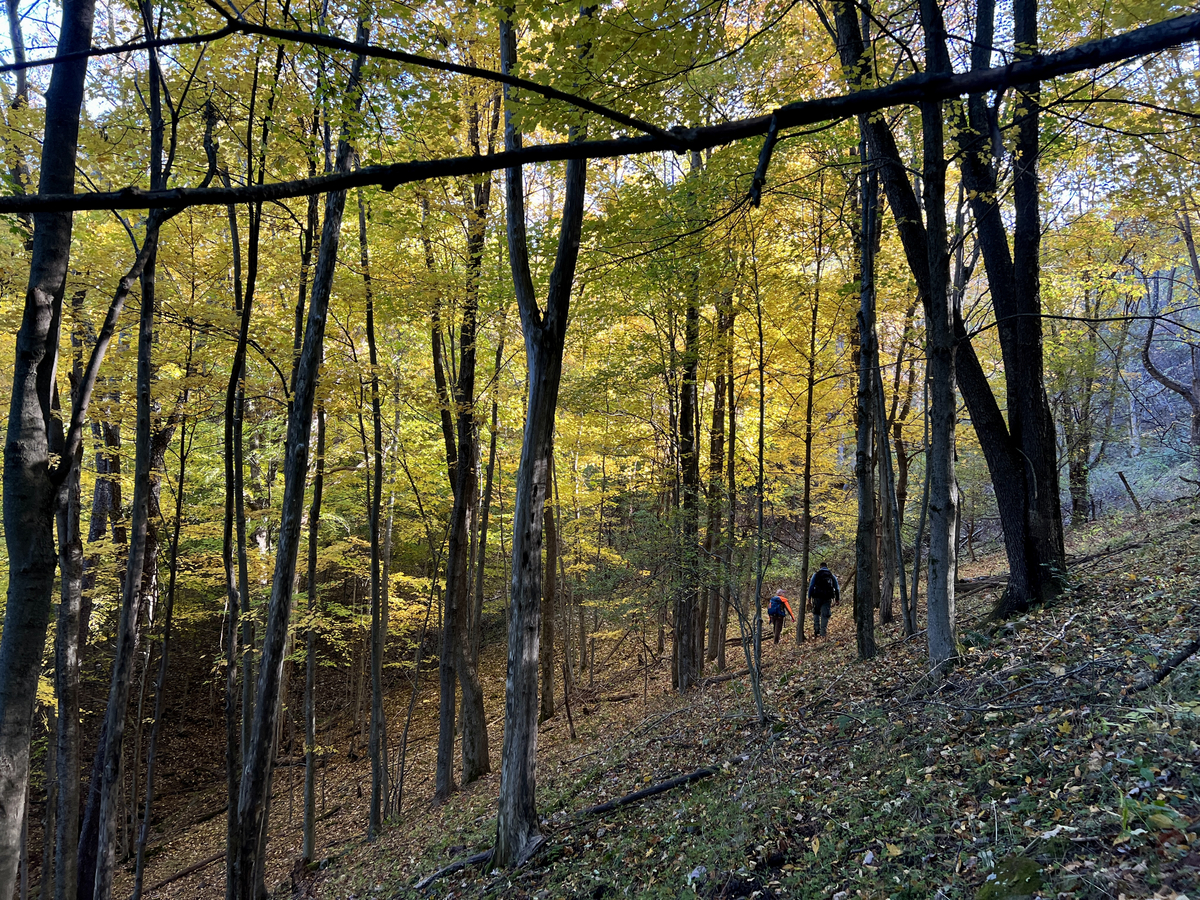
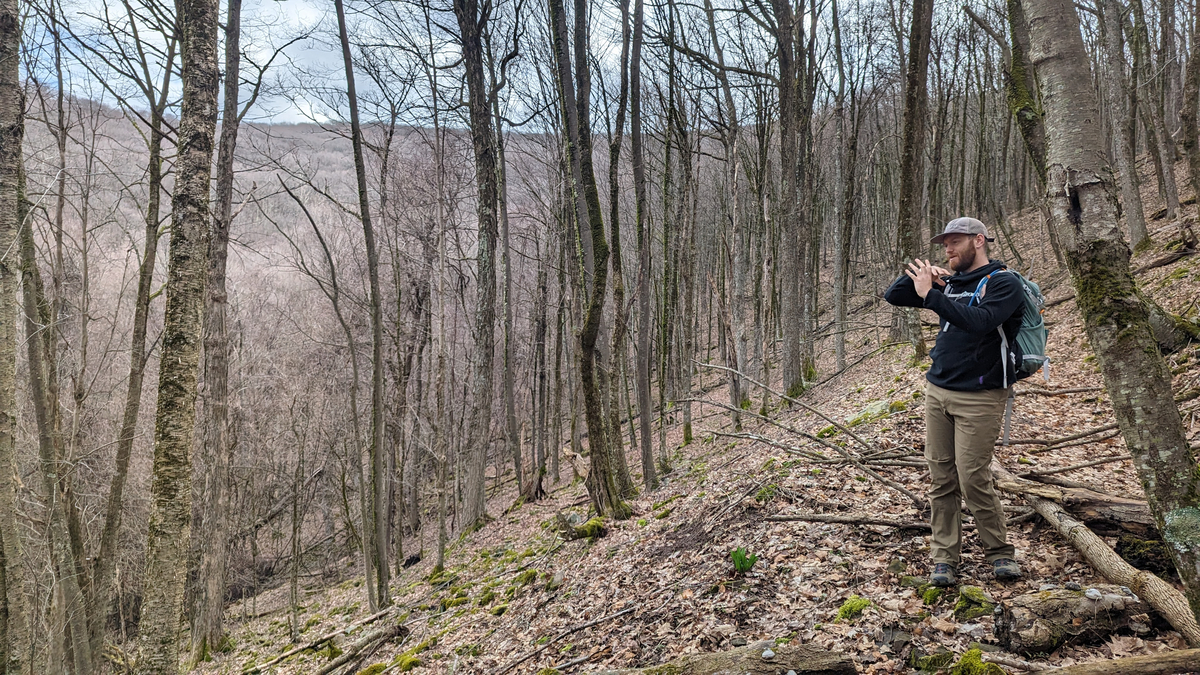
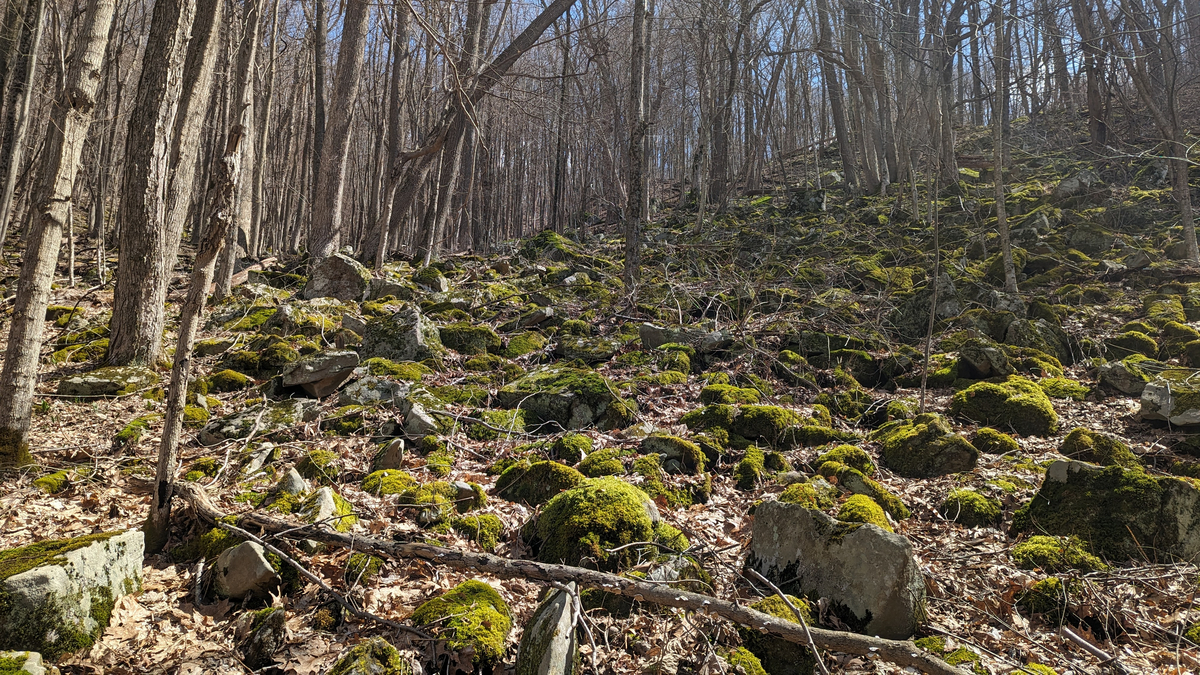
Fifteen miles of the concept plan were field-designed in October 2024. “These new trails will provide a full range of progression from beginner to advanced riders,” said Liz Grades, IMBA Trail Solutions Project Manager, “Numerous ridges and valleys are crossed along the journey to Bikle Knob, going through some incredible sections of forest.” Incredibly rocky terrain that makes way for plenty of technical challenges is telltale for the area. Given this, these new trails call for a large percentage of shared-use intermediate and advanced miles.
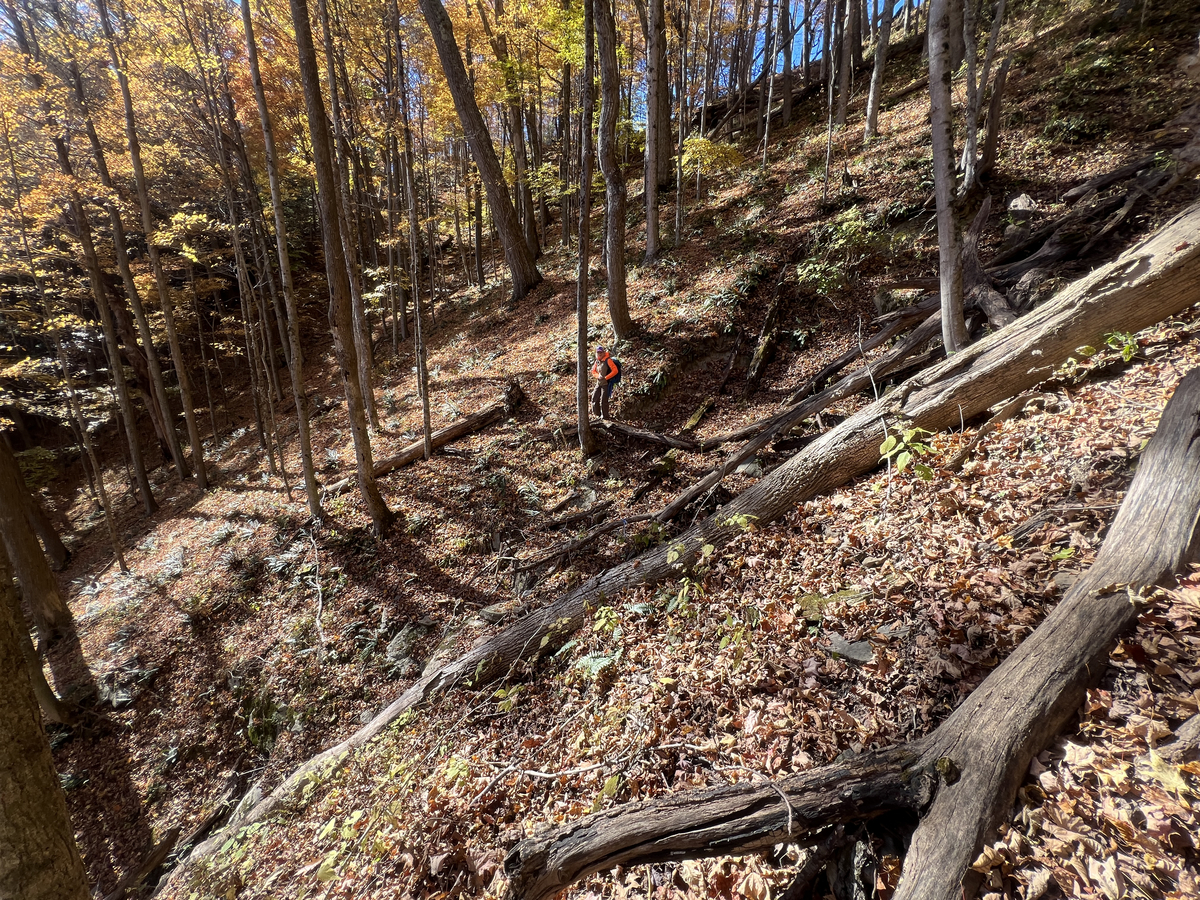
Liz Grades (IMBA Trail Solutions Project Manager/Planner) battles the signature steep hillsides of WV. //Mike Repyak
Two beginner bike-optimized trails pad the plan for up-and-coming riders and trail runners alike. These will provide easily accessible loops and linkages to more challenging trails as users progress. The punctuation mark on the plan starts at the summit of Bikle Knob: a 2.5-mile intermediate bike-optimized descending trail that weaves through a series of rock outcrops and some incredible open hardwoods.
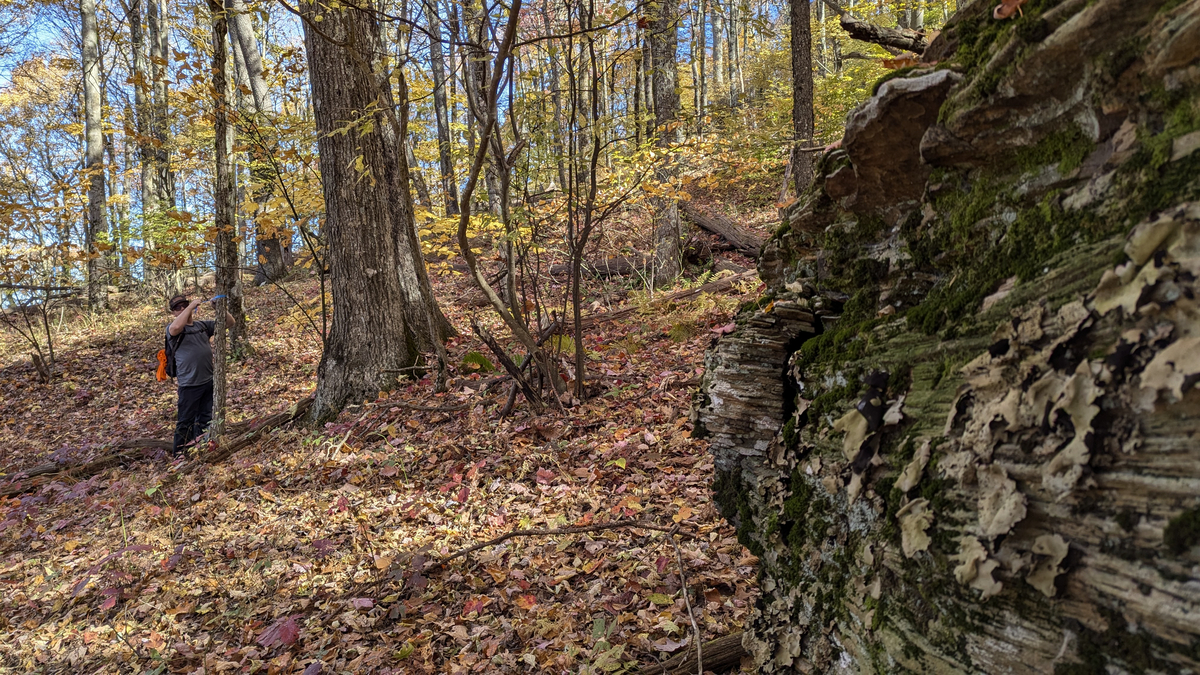
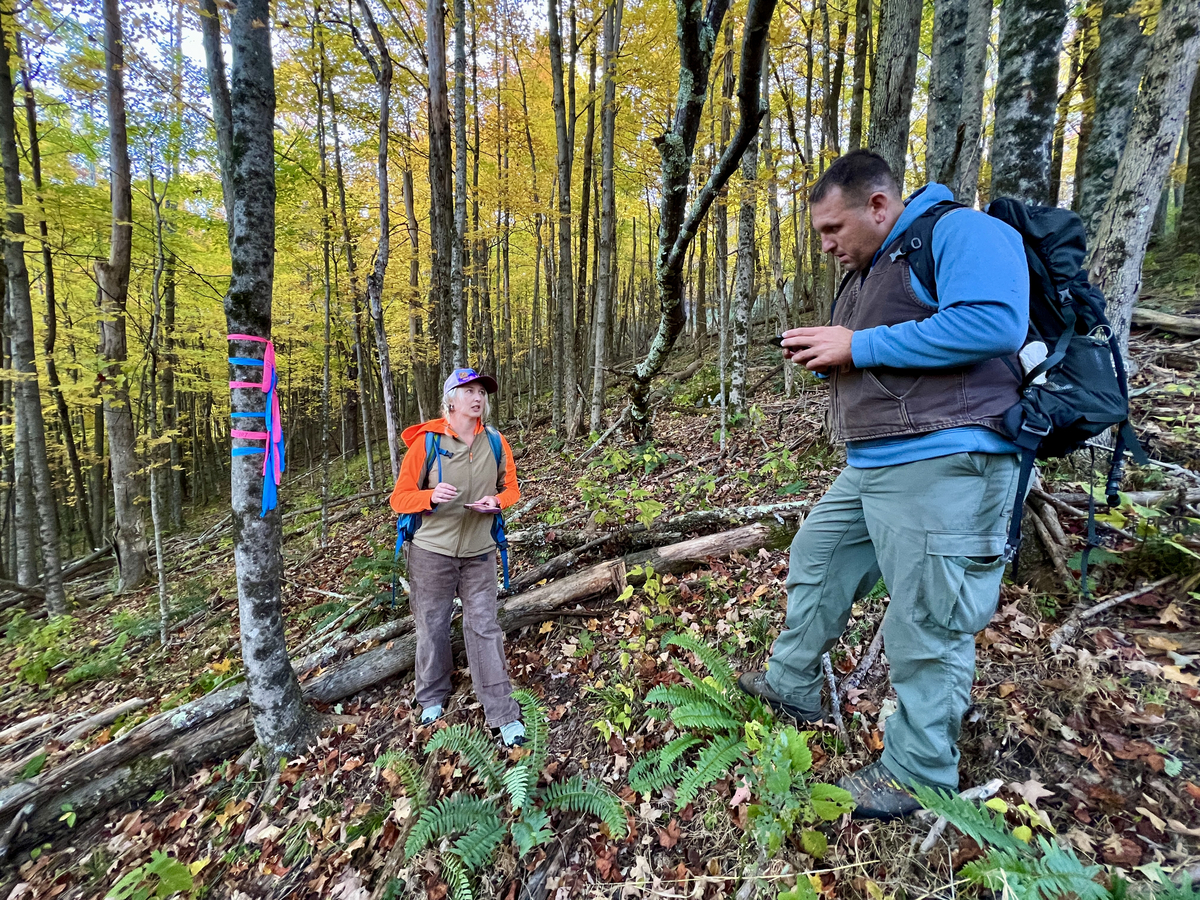
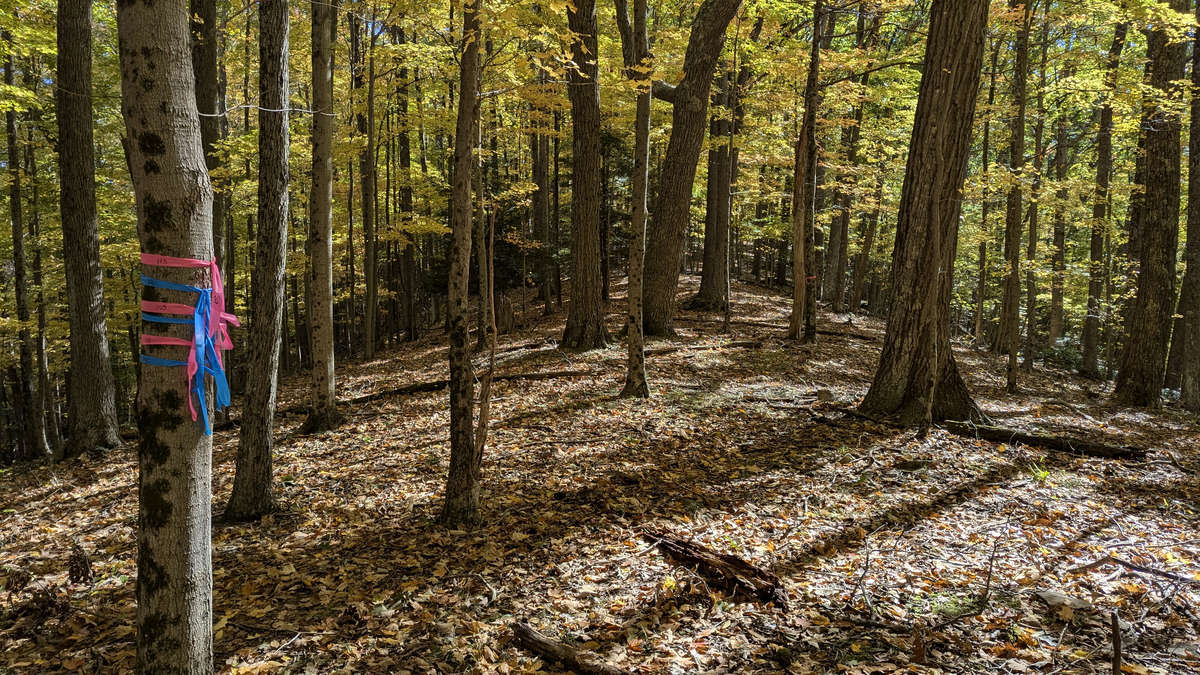
Phase one’s recipe of trails makes good on the promise for youth in the area. When West Virginia’s NICA league started, the Elkins Area was among the first five teams to form that inaugural year. “Our kids and coaches were motivated but struggled to find public lands to ride. We needed to lower the barriers for our youth to participate in this sport that teaches not only skills but also teamwork, confidence, volunteerism, and love of place,” said Jessica. The plan for Elkins will also keep residents closer to home by providing professionally designed and built trails to access areas and activities they already love and provide opportunities for visitors.
“The trails that IMBA is designing in the Monongahela National Forest will be a game changer for this area,” added Jessica. The next steps in this plan for Elkins include a formal review by the U.S. Forest Service in the winter/spring of 2025.
